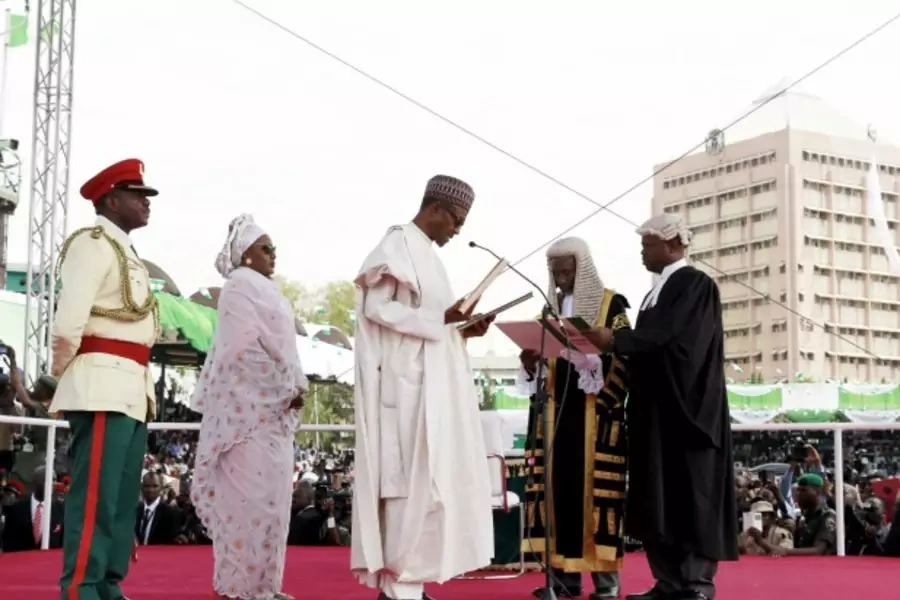Nigeria President Muhammadu Buhari’s Inauguration Address

More on:
In Nigeria’s current circumstances, it is hard to imagine a better inaugural address than the one President Buhari delivered on May 29. It strikes all the right notes. He accepted his new role as an international leader and thanked former president Goodluck Jonathan for his “statesmanship” in the transition, everyone involved in the electoral process, and Cameroon, Chad, and Niger for their part in the fight against Boko Haram. The speech was plain and devoid of national or personal self-congratulation and baroque rhetorical flourishes. It was also very short—only 1,909 words—but packed with substance.
On domestic issues, Buhari said there would be no “paying off old scores.” With the amnesty program in the Niger Delta, which disarms and rehabilitates militants, ending in December, Buhari emphasized that the federal government “intends to invest heavily in the projects and programs currently in place.” He also promised true federalism, with a revamping of the relationships between the executive, legislative, and judicial functions at the federal level, and between the federal, state, and local governments. And he promised to fight corruption.
The speech was also remarkable for its candor. On Nigeria’s notorious poor governance: after paying tribute to the heroes of Nigeria’s foundation, he said, “Some of their successors behaved like spoilt children breaking everything and bringing disorder to the house.” Or, “The judicial system needs reform to cleanse itself from its immediate past. The country now expects the judiciary to act with dispatch on all cases especially on corruption, serious financial crimes, or abuse of office.”
Buhari characterized Boko Haram as “a mindless, godless group who are as far away from Islam as one can think of.” His analysis of the immediate contributors to the rise of Boko Haram is cogent: “Boko Haram is a typical example of small fires causing large fires. An eccentric and unorthodox preacher [the founder of Boko Haram] with a tiny following was given posthumous fame and following by his extrajudicial murder at the hands of the police. Since then, through official bungling, negligence, complacency, or collusion, Boko Haram became a terrifying force taking tens of thousands of lives…”
Western friends of Nigeria will particularly welcome the specific steps Buhari announced with respect to the struggle against Boko Haram: an overhaul of security service rules of engagement to “avoid human rights violations in operations. We shall improve operational and legal mechanisms so that disciplinary steps are taken against proven human rights violations by the armed forces.” He said he would move the headquarters of government efforts against Boko Haram from Abuja to Maiduguri. On Boko Haram kidnapping, he said “…we cannot claim to have defeated Boko Haram without rescuing the Chibok girls and all other innocent persons held hostage by insurgents.”
More on:
 Online Store
Online Store